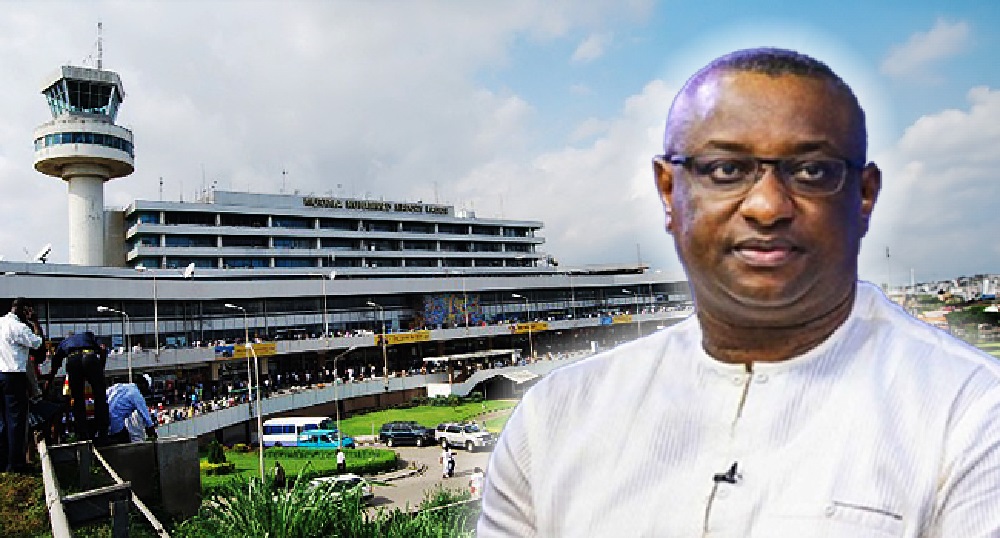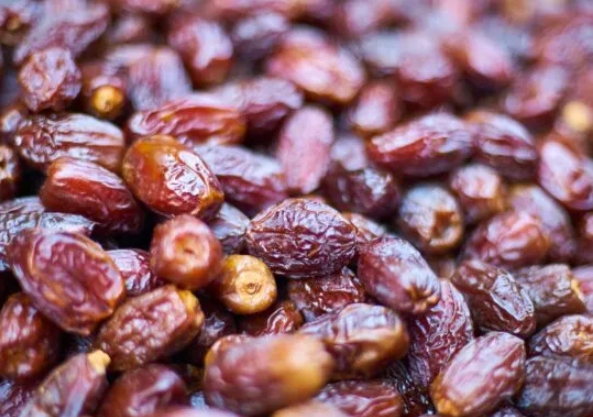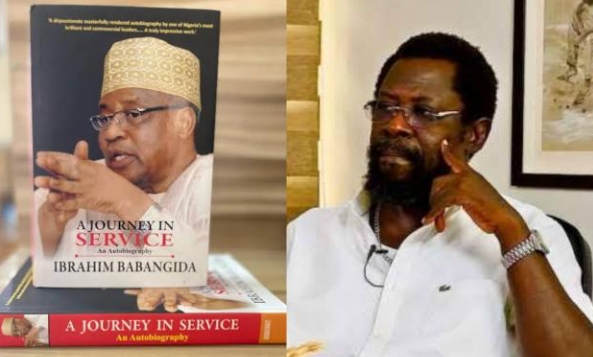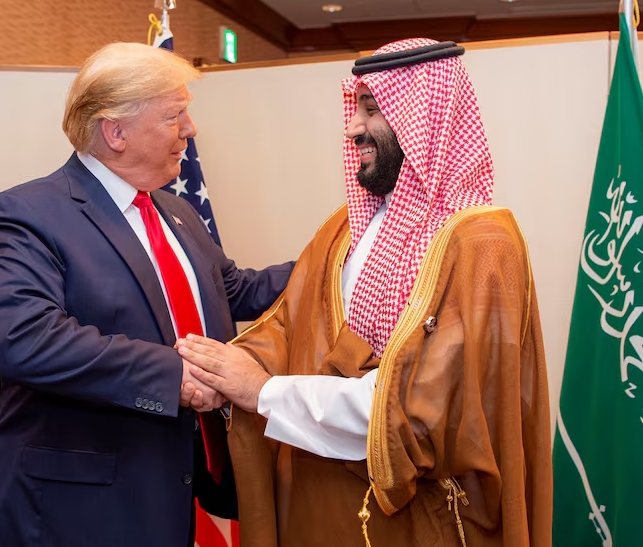News
Nigeria hits 75.5% on aviation compliance, secures exit from Global Aviation Watchlist watchlist

The minister made this known on Thursday during the commissioning of the Juhi-2 aviation fuel depot at the Murtala Muhammed International Airport in Lagos.
Nigeria has officially been removed from the global watchlist as its aviation rating rose to 75.5%, according to the Minister of Aviation and Aerospace Development, Mr Festus Keyamo.
The minister made this known on Thursday during the commissioning of the Juhi-2 aviation fuel depot at the Murtala Muhammed International Airport in Lagos.
Keyamo explained that the improvement follows the recent signing of the Cape Town Convention Practice Direction by the Federal Government, which had initially raised Nigeria’s aviation rating from 49% to 70.5%.
“This new status means that Nigeria is no longer on the watchlist, and airlines operating in the country can now access dry lease aircraft without any restrictions,” Keyamo said.
The minister also hinted at a surge in the number of aircraft entering Nigeria’s airspace, which may require Juhi-2 to expand its fuel depot capacity to accommodate the increased demand.
Patience Dappa, Chairman of Juhi 2 Limited, stated during the ceremony that the launch of the Juhi-2 depot is more than the completion of an infrastructure project.
According to him, it reflects the company’s commitment to excellence and innovation in aviation fuel management.
“As the largest airside jet fuel depot in Nigeria, this facility covers 46,000 square meters and holds a significant storage capacity of 15 million litres of Jet A1 fuel,” she noted.
Dappa emphasized that Juhi-2 is not just about its size but represents operational excellence, safety, and reliability. It features advanced filtration systems, a jet fuel discharge system that can load four bowsers at once, a modern laboratory, and top-tier fire prevention systems.
“This strategic asset is designed to ensure a consistent and reliable supply of jet fuel to Murtala Muhammed International Airport (MMIA), MMA1, MMA2, and nearby airbases,” she said.
In a related development, in September, the Nigeria Civil Aviation Authority (NCAA) shed light on the reasons behind Nigeria’s reclassification to Category 2 status, which led to the suspension of Nigerian airlines’ operations to the United States.
Captain Chris Najomo, Acting Director General of Civil Aviation, in a statement, clarified that Nigeria’s airlines can only operate flights to the US upon successfully passing the International Aviation Safety Assessment (IASA) Programme and achieving Category 1 status, a prerequisite also applicable to other countries.
Najomo said, “The attention of the NCAA has again been drawn to a publication about the purported ban on Nigerian airlines by the United States. Due to the wrong impression such news could create, it has become expedient that we put this report in its proper perspective.
“Upon attaining Category 1, Nigerian airlines would be permitted to operate Nigerian registered aircraft and dry-leased foreign registered aircraft into the United States, in line with the existing Bilateral Air Services Agreement (BASA).”
Najomo provided historical context by revealing that Nigeria initially achieved the coveted Category 1 status in August 2010.
Subsequently, the US Federal Aviation Administration (FAA) conducted a follow-up safety evaluation in 2014 to assess Nigeria’s continued adherence to international aviation safety standards.
Furthermore, Najomo noted that an additional safety assessment was undertaken in 2017, resulting in Nigeria’s successful retention of its Category 1 status.
However, he clarified that the US FAA introduced a significant policy change in September 2022, whereby countries previously classified as Category 1 would be de-listed if, after a two-year period, they lacked an indigenous airline operating direct services to the US or partnering with a US-based carrier.
He said, “Also removed from the Category 1 list were countries where the FAA was not providing technical assistance, based on identified areas of non-compliance to international standards for safety oversight.
“No Nigerian operator has provided service into the United States using a Nigerian registered aircraft within the two years preceding September 2022.”
News
Saudi Arabia donates 100 tonnes of dates to Nigeria as fasting approaches

By Kayode Sanni-Arewa
The Embassy of the Kingdom of Saudi Arabia in Abuja has held an official ceremony to distribute 100 tonnes (100,000kg) of dates to Nigeria as part of its annual humanitarian relief efforts.
The initiative, facilitated by the King Salman Humanitarian Aid and Relief Centre (KSrelief), aims to support vulnerable families across the country and strengthen the deep-rooted ties between the two nations.
During the ceremony, the Ambassador of the Custodian of the Two Holy Mosques to Nigeria, Faisal bin Ibrahim, conveyed the Kingdom’s dedication to humanitarian causes.
He expressed his profound gratitude to King Salman bin Abdulaziz and Crown Prince Mohammed bin Salman for their unwavering support in providing aid to Muslims and underserved communities worldwide.
He emphasised that Saudi Arabia remains steadfast in its commitment to fostering Islamic solidarity and providing relief to those in need.
Mr Al-Ghamdi explained that this year’s distribution includes 50 tonnes of dates for Abuja and another 50 tonnes for Kano, continuing Saudi Arabia’s tradition of assisting Nigeria through humanitarian donations.
He noted that the initiative represents the Kingdom’s broader mission to uplift Muslim communities, alleviate suffering, and promote unity, particularly during significant religious periods such as Ramadan.
The embassy, in collaboration with local authorities and humanitarian organisations, will ensure the proper distribution of the dates so that they reach the most vulnerable families in various regions of Nigeria
Saudi Arabia has been a longstanding partner in providing humanitarian aid to nations across the globe, including Nigeria. The Kingdom’s continued efforts in supporting food security and welfare initiatives exemplify its role as a global leader in charitable and humanitarian endeavours.
Through Vision 2030, Saudi Arabia seeks to expand its contributions to international humanitarian causes, reinforcing its dedication to fostering peace, stability, and prosperity worldwide. The ongoing provision of aid to Nigeria is a testament to these commitments and highlights the decades-long partnership between the two brotherly nations.
News
Babangida’s Book is filled with distorted facts, collection of lies, says Dele Farotimi

By Kayode Sanni-Arewa
Dele Farotimi, a human rights lawyer, has launched a heavy attack on former dictator Gen. Ibrahim Babangida (retd.), describing his reign as “ruinous”.
Farotimi, who lived through Babangida’s rule, recounted his experiences as a participant in the fight against the former leader’s “evil actions and inactions
Farotimi’s comments come after Babangida’s recent admission that Chief M.K.O. Abiola won the 1993 presidential election, which Babangida annulled.
The human rights lawyer expressed his disappointment, but not surprise, at the “mixed bag of lies, half-truths, urban legends, and obfuscations” in Babangida’s recent statements.
Farotimi’s criticism is not isolated, as many Nigerians have questioned Babangida’s legacy and the lack of consequences for his actions. The annulment of the 1993 election led to widespread protests and a prolonged struggle for democracy in Nigeria.
In a statement, Farotimi concluded, “No hagiographic allocutus can redeem the Evil Genius of Minna”.
The statement was shared on X while he was reacting to a comment made by Adnan Abdullahi Adam, which stated that “it’s better to read every side of exposition before forming your own judgement”.
With the cover picture of the IBB’s memoir “A Journey In Service” @realadnantweet wrote:
“I think IBB’s memoir: “A Journey in Service” exposes a fresh perspective on everything.
“It’s better to read every side of exposition before forming your own judgement.
“Everyone should try reading the book as jury to the plea of the accused.”
Responding Farotimi wrote: “I lived through his ruinous reign. I wasn’t a passive victim of his evil actions and inactions, I was a participant in the fight to be freed of him.
“I am painfully aware of the extent of his evil capabilities, and I have not been disappointed by the mixed bag of lies, half truths, urban legends, and obfuscations contained in the excerpts already in the public domain. No hagiographic allocutus can redeem the Evil Genius of Minna.”
On Thursday, February 20, 2025, former Nigerian military ruler General Ibrahim Badamasi Babangida (IBB) released his long-anticipated autobiography, “A Journey in Service.”
The memoir has ignited a firestorm of controversy, with critics accusing Babangida of distorting historical events and maligning deceased individuals who cannot defend themselves.
This development has reopened debates about his tenure and its lasting impact on Nigeria’s political and economic landscape.
Babangida’s tenure from 1985 to 1993 was marked by the implementation of the Structural Adjustment Programme (SAP), among others. In “A Journey in Service,” he provides an insider’s perspective on the adoption of SAP, aiming to offer context for the controversial policy that aimed to liberalize Nigeria’s economy.
While intended to address economic challenges, SAP led to widespread protests and debates due to its harsh austerity measures and the social hardships it imposed.
Critics, however, contend that Babangida’s memoir serves as a self-exoneration tool, selectively presenting events to absolve himself of blame.
Human rights lawyer and former Chairman of the Nigerian Human Rights Commission, Prof. Chidi Odinkalu, described the book as a “pack of lies,” accusing Babangida of making allegations against deceased individuals who cannot contest his claims.
Odinkalu further criticized Babangida for portraying himself as a victim of circumstances orchestrated by those who are no longer alive to defend themselves.
The memoir has also rekindled discussions about Babangida’s annulment of the June 12, 1993, presidential election, widely regarded as one of Nigeria’s freest and fairest elections. In the book, Babangida attempts to justify the annulment, a move that plunged the nation into political turmoil and prolonged military rule. Many Nigerians view this action as a significant setback to the country’s democratic progress.
News
Saudi Arabia plans to invest $600bn in new US trade over 4 years

By Kayode Sanni-Arewa
Saudi Arabian Crown Prince Mohammed bin Salman told President Donald Trump that the kingdom wants to put $600 billion into expanded investment and trade with the United States over the next four years, the Saudi State news agency said early on Thursday.
In a phone call between the two leaders, the crown prince said the Trump administration’s expected reforms could create “unprecedented economic prosperity”, the state news agency reported.
The report said Saudi Arabia wants its investments to capitalize on these conditions. It did not detail the source of the $600 billion, whether it would be public or private spending nor how the money would be deployed.
The investment “could increase further if additional opportunities arise”, the agency quoted Bin Salman as telling Trump.
Trump fostered close ties with Gulf states including Saudi Arabia during his first term. The country invested $2 billion in a firm formed by Jared Kushner, Trump’s son-in-law and former aide, after Trump left office.
Trump said following his inauguration on Monday that he would consider making Saudi Arabia his first destination for a foreign visit if Riyadh agreed to buy $500 billion worth of American products, similar to what he did in his first term.
“I did it with Saudi Arabia last time because they agreed to buy $450 billion worth of our product. I said I’ll do it but you have to buy American product, and they agreed to do that,” Trump said, referring to his 2017 visit to the Gulf kingdom.
The Reuters Daily Briefing newsletter provides all the news you need to start your day. Sign up here.
Reporting by Hatem Maher; Editing by Leslie Adler and Cynthia Osterman
-

 Metro18 hours ago
Metro18 hours agoInsecurity! Gunmen invade church, slash pastor’s 2 fingers
-

 Metro18 hours ago
Metro18 hours agoFire engulfs MTN office in Oyo
-

 Foreign18 hours ago
Foreign18 hours agoPentagon set to sack 5400 staff as attack hits Trump’s downsizing plan
-

 Metro18 hours ago
Metro18 hours agoDanger averted as police rescued six kids from collapsed building
-

 News17 hours ago
News17 hours agoNSCDC, Tantita intensify joint efforts to combat oil theft in Niger Delta
-

 Sports18 hours ago
Sports18 hours agoEnd of road for Arsenal, may not win any shield this season – Report
-

 News11 hours ago
News11 hours agoThai lady arrested at Lagos airport with boxes of illicit drug consignments
-

 Politics19 hours ago
Politics19 hours agoEx-Delta Reps member Ossai dumps PDP for APC







